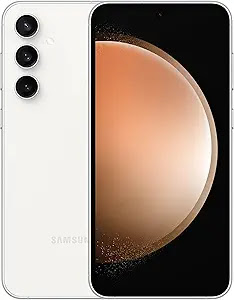Introduction
The mobile phone has emerged as a powerful tool, transforming the way people communicate and connect across the globe. For LGBTQ individuals, this transformation has been particularly significant, facilitating a revolution in social interactions, access to information, and community building. This article explores the profound impacts of mobile phone technology on LGBTQ, communities, examining both the positive effects and the challenges that have emerged, along with future predictions for mobile phone use in this context.
Positive impacts of mobile.
Connectivity and Community Building.
Mobile phones have enabled LGBTQ,individuals to connect with each other in ways that were previously unimaginable. Apps and social media platforms provide safe spaces for users to express their identities, seek support, and find community. For instance, dating apps like Grindr and HER have revolutionized how LGBTQ, individuals meet potential partners, fostering connections that transcend geographic barriers.
Access to information is crucial for LGBTQ,individuals, especially for those in areas with limited support networks. Mobile phones allow for the immediate dissemination of information related to LGBTQ, rights, health resources, and community events. Websites and apps dedicated to LGBTQ+ issues provide users with essential resources, from mental health support to legal rights information, empowering them to navigate their lives more effectively.
The rise of mobile technology has also empowered LGBTQ, communities to advocate for their rights. Social media platforms serve as vital tools for activism, allowing individuals to organize protests, share personal stories, and raise awareness about discrimination and violence faced by LGBTQ, individuals. Campaigns such as ,LoveIsLove and TransRightsAreHumanRights have gained momentum through mobile connectivity, amplifying voices that may have otherwise gone unheard.
The anonymity provided by mobile technology can be especially beneficial for LGBTQ, individuals seeking mental health support. Many apps offer access to therapy, counseling, and peer support groups tailored to LGBTQ, needs. This accessibility reduces stigma and encourages individuals to seek help, contributing to improved mental health outcomes within the community.
Challenges Faced by LGBTQ, Individuals in Mobile Phone Use.
Despite the benefits, mobile phone use also presents significant challenges, particularly regarding privacy and safety. LGBTQ,individuals often face the risk of being outed or targeted through their online activities. Apps that facilitate dating or social connections can expose users to harassment or violence, especially in regions where LGBTQ, identities are criminalized or stigmatized.
Not all LGBTQ, individuals have equal access to mobile technology. Socioeconomic factors can create a digital divide, where marginalized individuals, particularly those from lower-income backgrounds or rural areas, may lack access to smartphones or reliable internet. This divide exacerbates existing inequalities within the community, limiting opportunities for connection and support.
Misinformation and Stigmatization.
The internet can also be a source of misinformation, particularly regarding health and safety. LGBTQ, individuals may encounter harmful stereotypes or misleading information about their identities and experiences. This can perpetuate stigma and discrimination, making it essential for users to critically evaluate the information they encounter online.
Predictions for the Future.
As technology continues to evolve, so too will the ways in which LGBTQ, individuals use mobile phones. Innovations in mobile applications will likely enhance connectivity and support, with features tailored specifically to the unique needs of LGBTQ, users. For example, future apps may integrate advanced safety features, such as location sharing with trusted contacts during social outings, or emergency response options for users in distress.
Increased Focus on Security.
In response to privacy concerns, app developers are likely to prioritize security measures, ensuring that user data is protected and that individuals can engage safely with their communities. Enhanced encryption and user-controlled privacy settings will be crucial in building trust within the LGBTQ, community.
Expanding Access to Technology.
Efforts to bridge the digital divide will become increasingly important. Initiatives aimed at providing affordable mobile devices and internet access to underserved LGBTQ, populations can help foster inclusivity and support within the community. Partnerships with non-profits and governmental organizations may play a vital role in expanding access to technology.
The Role of Virtual Reality and Augmented Reality
Emerging technologies such as virtual reality (VR) and augmented reality (AR) may offer new avenues for LGBTQ, individuals to connect and engage with their communities. VR platforms could create immersive environments for social interactions and events, allowing individuals to participate in LGBTQ, spaces regardless of their physical location. This could be especially beneficial for those in hostile environments where in-person connections are risky.
The mobile phone has become a cornerstone of communication and connection for LGBTQ,individuals, shaping their experiences in profound ways. While the benefits of mobile technology are significant, the challenges cannot be overlooked.
As we look to the future, it is essential to harness the power of mobile technology to foster inclusivity, support, and advocacy within LGBTQ, communities. By addressing privacy concerns, bridging the digital divide, and embracing emerging technologies, we can ensure that mobile phones continue to serve as a lifeline for LGBTQ,individuals, enhancing their lives and fostering a more connected and supportive world.











